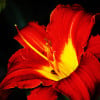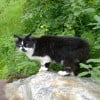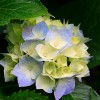What fantasy cliches should be avoided when writing a novel?
What fantasy cliches should be avoided when writing a novel?
I am an amateur fantasy novel writer but feel I may get trapped and add the same old cliches into my work - what cliches should be avoided, and watch should I always include. Examples of books (and reviews of them) which use good cliches would be helpful!It all depends on your audience. If you're targeting a Flaubert, or James Joyce type of audience, then any cliche will work, as long as it's well written and executed. If your audience is the "Romance Novel Industry," then it's hard to tell, because these readers are fickle and typically want some type of sexual fantasy - e.g. the prostitute falling in love with a successful accountant, or, a successful business woman falling in love with the handyman...difficult to tell what to avoid, because, you might be avoiding something that people might actually sell....
SC,
in my opinion, unless you are writing a time traveled theme book or it is a major plot item- dont bother, its a cool concept except a bitcliche.
2. Monsters- in space anything can go personally i'd stick to the Grey or Lizardman or a hybrid of those type races since there are alot of folks who believe these two races have visited the Eartth most often.
3. Weapons- time period specific please depending on your plot of course- Ancient egyptians couldve been taught to shoot guns N RpGs but i'd still shy away from it.
4. If you can tie your story into real events that would kick ass-
5.Violating a few of my rules I have an idea that the Roswell crash was not aliens but human time travelers - from the future- creating the various new fangled items that we all love I have great ideas- no ambition...
6. i think the best ideas try to explain difficult topics easily
7.Most of all people are people they will do things that is in our nature unless your character is really flawed.
THAT MY FREIND IS MY UNCORROBORATED OPINION...
oh ya uze gud grahmmer nd schpellin.unless yur mane charachter iz ad duhmey
THIt is near impossible, if not impossible, to have an original idea. EVERYTHING has been done before, the trick is to put a unique spin on a concept. For example, a man falling for a woman who comes from the other side of the tracks has been done over and over again. It is ok to write that story again, we all love it, but it has to bring something new. Pride and Prejudice in Space! I'm going to work on that. The cliches to avoid, in my opinion, are the ones embedded in the language you use to tell the story. All of us Jane Austen fans will read the book Pride and Prejudice in Space, but if it is not written well, I may not buy the same author's second book ... "Northanger Abyss."
The fantasy genre is a tough one to avoid cliches because most are heavily influenced by childhood fairy tales and/or the Lord of the Rings. Therefore, even if you cut out every elf, dwarf, dragon and fairy, there are still going to be things that are similar (like a hero's journey or an evil wizard). In my fantasy novel, I started one of my early drafts with these cliches in place, mostly because it helped move the plot along. However, as the story grew, I decided that I didn't want any of them in there and I either cut them, or made a new creature to take their place. Ultimately it was a lot more work on my end and, while I believe it is a better final product, I've also spent a lot of time recently writing a different story that doesn't shy away from cliches. And this story, while it doesn't necessarily break any new ground, it is a lot more fun to write. So, my point is, what you write should be what you want to write, not what you think you should write. If you feel that a cliche would help your story along, then use it. And, if later you decide the story would be better off without it, remove it. But your primary goal should always be to get something down on the page. Because if there's one thing I've learned from writing a fantasy novel, it's that forward momentum is everything. Even the shortest sentence written in one day is still progress and will still move you toward your ultimate goal.
Read the classic essay "Thud and Blunder" by Poul Anderson before proceding further. http://www.sfwa.org/2005/01/on-thud-and-blunder/
I think that you need to distinguish between classic themes, like the quest, or the orphan who makes good, and cliched treatments of those themes . . . which can irritate the careful reader.
Read the best, check out on-line reviews in moderated sites, and good luck on your novel!Rather than avoiding cliches, I suggest you first focus on being original, then catch (and remove) most cliches when editing.
If you are writing the novel primarily as entertainment, then some cliches are acceptable, but avoid too many, and avoid tired cliches. ("Tired cliche," by the way, is a tired cliche.) If you want to be more literary, avoid cliches altogether, or play with them in a way that turns literature into Metafiction. (Read John Gardner's "The Art of Fiction" for more on literature and metafiction.)
To go further, we have to look at cliches of plot, of characters, and of phrases.
In plot, entertaining genre fiction is defined by a somewhat cliched plot. You want to meet reader expectations by being familiar so they feel safe and happy. But don't bore them by being completely predictable. Lay out a plot that is not a complete cliche. There must be some unusual twists and turns - either one big one, or several interesting ones. And these should arise from the depths of the beings of your characters.
In characters, make your central character real, whole people (or elves, or demons). Do not let any of your central characters be flat or cliched. Your minor characters will have to be flat, but don't make them particularly typical or usual. That's character cliche, and its boring.
Cliched phrases are strings of words that people have heard too many times before. People either glaze over their meanings, or get bored. Cliches of this sort will creep in. Kill them by editing before you publish.
It can help to turn cliches upside-down or on their heads, flip them, kick them, mix them intentionally, give them a good beating, and deliver them to your reader, preferably by racing by in a car and throwing them out the door. (This is an example, except I went a bit too far at the end.)I don't know if you can avoid cliches, but if you tell them in your own way that is good!
There is a funny site/contest is the Bulwer-Lytton fiction contest. (Lots of people in my family have entered with no success!)
He is the writer famous for "It was a dark and stormy night; the rain fell in torrents — except at occasional intervals, when it was checked by a violent gust of wind which swept up the streets (for it is in London that our scene lies), rattling along the housetops, and fiercely agitating the scanty flame of the lamps that struggled against the darkness.” ..."
You can try to see if you can out-cliche the master... Or just try to figure out your own way to say, "The night was really rainy and windy."To answer you question: ever fantasy cliche should be avoided.
However, while writing, rather than avoiding the cliches, what if you write it down first and then figure out a way to give them an original twist or spin them around in a new way?
I feel some of the most original works use cliches (which are techniques and elements the viewer/readers have become familiar with) in an unexpected way. Eventually every original writing technique, if over used, becomes cliche. And that's something that should be avoided in ever form of writing.I think you rather let a critical friend to find the clichés for you.
If you do it by yourself, you might kill valuable paragraphs.
Besides, I would say you can read what you wrote several weeks ago, you might have a different perspective so would be easier to identify the clichés.If you really want to read a list of common fantasy cliches, I suggest reading Diana Wynne Jones's TOUGH GUIDE TO FANTASYLAND. It's like an a-z list of every basic epic fantasy cliche there is, and does it in a comical way. It's written like one of those old-fashioned guide books, and I laughed out loud at some of her descriptions. I may never think of stew in the same way again. This book is also the inspiration for one of her later works called The Dark Lord of Derkhelm, where a world is taken over and turned into a tourist resort for the rich LARPing crowd. All the cliches are covered again in a funny new way. They're awesome books, and I totally recommend them.
Related Discussions
- 40
I want to write a book... but where/how do I begin?
by Jeff Davis 14 years ago
This question is directed to anyone who has written, or is currently in the process of writing a book. Can I pick your brain? I am simply seeking some advice/tips from you hub authors out there who are also book authors. ie: Where did your book idea originate? How much time did you devote to...
- 20
Has anyone tried writing a novel lately?
by Deah West 9 years ago
I am currently working on three novels and I was wondering about the voice I am writing in for one of them.I started writing in first person passive I think and then switched to third person omniscent and have to change all my first person to that third person voice.In addition to this I have a lot...
- 100
In Your Opinion, What's The Hardest Thing About Writing A Novel?
by setareh 12 years ago
There are a LOT of challenging things about writing a novel, as i'm currently working on one. I'm I'm on page 203 and am still far from done and i don't mean length-wise.In my opinion, creating complex characters that win over an audience is.Why don't you share your thoughts? I'd love to...
- 6
How to go about writing a novel?
by dazzlede 14 years ago
How to go about writing a novel?The idea, the inspiration is there but gets lost mid way..suggestions to make me stay with it and how to generate new idea are requested. And what would you want a novel to be about....I can always incorporate the twists and turns.
- 16
Anyone have good advice on helping with writers block while writing a novel?
by Kristen Mazzola 12 years ago
Anyone have good advice on helping with writers block while writing a novel?I am currently writing my first novel and I am stuck right in the middle. I have a little over 30,000 words written and I have found myself unable to let words flow when I sit at my computer to write. Any ideas?
- 208
Who here has tried writing a novel?
by setareh 13 years ago
I've tried many times but midway lose myself and just stop. Ahhh!
















